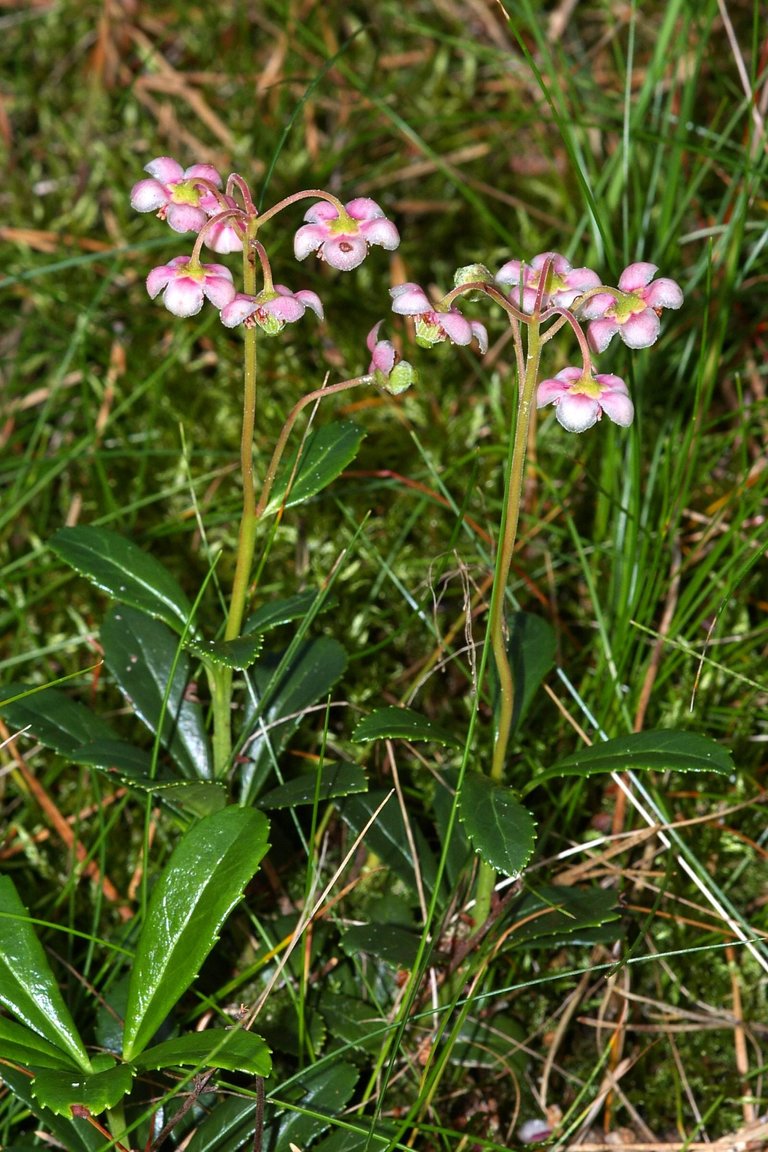By Christian Fischer, CC BY-SA 3.0, https://commons.wikimedia.org/w/index.php?curid=378261

“So I noticed that you and Grandma Gladys, Dad's mom, have something in common, and then when we would go up to visit Grandma Gladys's Jubilee-of-the-mountain relatives, all of them had a garden too and a big herb garden part. So then I asked and Grandma Gladys said that God gave us food to keep us healthy and herbs for medicine as well as taste, and she said if I got good at growing the taste herbs, she would show me how to grow the native power herbs.”
Eleven-year-old Velma Trent was talking with her namesake, her mother's mother Mrs. Velma Stepforth, as they were picking pineapple sage in little Velma's flourishing summer garden. She had plenty of fruits and vegetables in it – her main basket was full of tomatoes and peppers, and Grandma Velma was carrying a basket full of zucchini and pattypan squash – but little Velma had a separate basket for herbs.
“I notice you have some wintergreen and pipsissewa growing here already – you know that pipsissewa means 'It Breaks in Pieces!' in Native Cree,” Mrs. Stepforth said.
“Actually, the pipsissewa chose where the herb part of the garden was going to be because I sent Grandma Gladys a picture, and she said when she saw those that the ground had a lot of things in it that would be good for growing herbs,” Velma said. “Pipsissewa is really pretty, and it works with the local fungi – mushrooms and stuff – so if you see it happily growing, the soil is good.”
“You really are into this because you talk like my friends who are really in touch with plants talk,” Mrs. Stepforth said. “You said the pipsissewa chose where the rest of the herbs would go.”
“Well, it was here first, along with the regular wintergreen,” Velma said. “They are native to Virginia, and I didn't feel like we just should rip them up and plant some parsley over them.”
“Got it,” Mrs. Stepforth said.
“And, see, that's the other thing,” Velma said. “In the winter, we can just eat the wintergreen leaves and berries, but that's the step up from a taste herb to a power herb – wintergreen tastes good and pipsissewa breaks in pieces, so this year, I'm just going to let it be beautiful, and then next year Grandma Gladys will show me what to do with it. It's like wild ginger, Grandma Velma – that grows near here too. Steep it in water for a few minutes, and you have a nice tea. Make something out of it with alcohol or vinegar and you've got a big problem.”
“Oh, yes – we need our kidneys and too much wild ginger will shut them all the way down,” Mrs. Stepforth said. “I remember there was a new family that moved here when I was growing up and was so glad to find cheap ginger – we tried to tell them!”
“It's like playing in the medicine cabinet and taking anything that looks interesting to you, except it's God's medicine cabinet out here,” Velma said. “Even too much sage is too much, but it's not going to kill you. Some of this stuff out here in the wild, though?”
“That's actually part of it being the wild, though,” Mrs. Stepforth said. “You can't make the wild do what you want it to do. You learn how to work with it.”
“Oh,” Velma said. “That makes sense.”
“It's like you respected the native plants and planted your domesticated herbs around them – you can get the supermarket-type herbs in wherever you have space, but you worked with the wild herbs as they were.”
“Oh,” Velma said. “The wild is to be respected.”
“Exactly,” Mrs. Stepforth said. “Some things are like the wind and water, the fire and the earth – we can use them, but if we don't respect them, they will hurt or kill us and a whole lot of other people.”
“Like making a big gingerbread from wild ginger,” Velma said.
“Right on,” Mrs. Stepforth said.